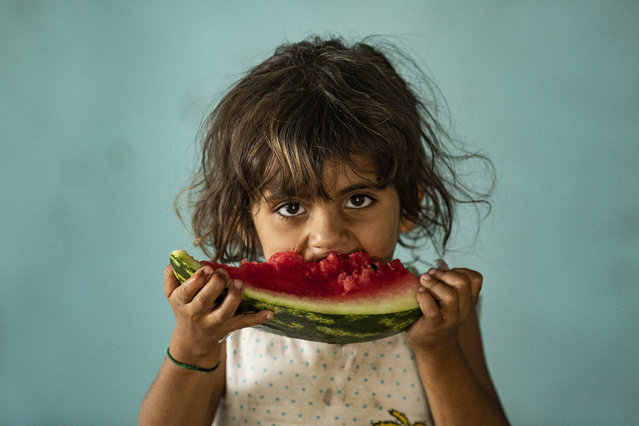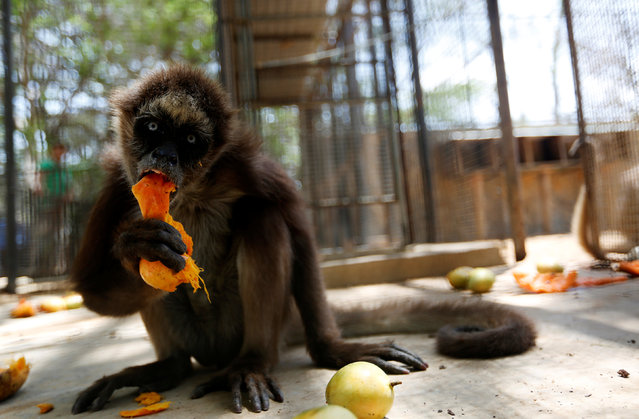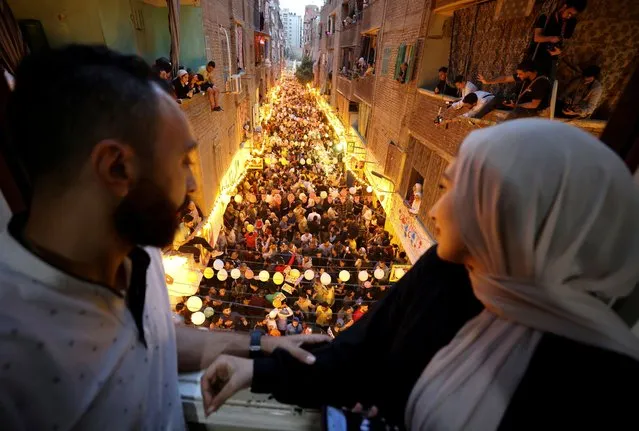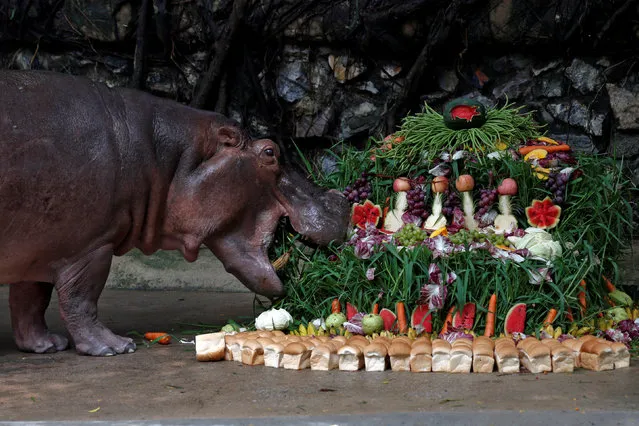
A girl eats a watermelon slice while at a school building where Syrians – displaced from the area of Ras al-Ain by the Turkish offensive on the northeast – are staying in the city of Hasakah, on June 30, 2020. (Photo by Delil Souleiman/AFP Photo)
11 Jul 2020 00:01:00,post received
0 comments







